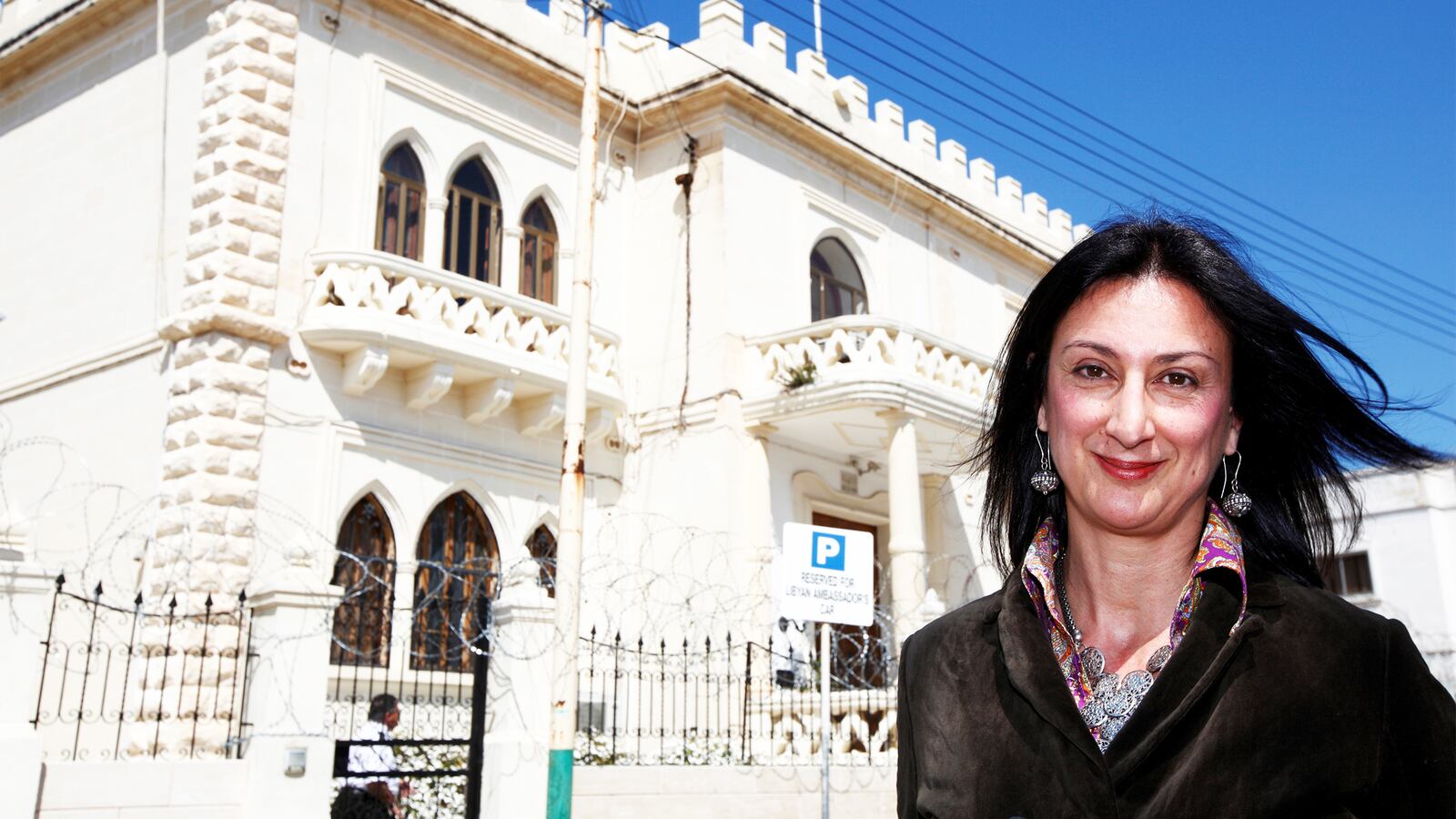Updated 17 October 2017 at 11:00 a.m. EDT
ROME—I first met Maltese journalist Daphne Caruana Galizia on a windswept hill in Gozo off the island of Malta. We were both chasing a pedophile priest by the name of Father Anthony Mercieca, who had been accused in 2006 of sexually abusing American congressman Mark Foley, who had, in turn, violated an intern with blatant sexual harassment he admitted to and blamed on Father Mercieca.
Father Mercieca had said he “only fondled” the American, but Daphne knew better and had reported on every detail of the predatory priest’s considerable list of suspected sins. She also had his phone number, and she generously shared it with me. I got my story entirely thanks to her.
Daphne and I would end up running into each other in odd places under strange circumstances for the next decade—on a migrant rescue vessel off the Libyan coast, at a funeral on Lampedusa, at a mafia trial in Naples. She was always one step ahead of what everyone else even knew they were chasing.
No doubt, her journalistic acumen contributed greatly to the sad fact that she died when someone planted a bomb in her Peugeot 108 on Monday near her home in Bidnija on the island of Malta. She had just been featured in Politico’s 28, a list of the most influential bloggers and journalists “shaping, shaking and stirring Europe.” They called her a “one woman WikiLeaks” for her work investigating Maltese corruption in the Panama Papers, which implicated a number of Maltese officials in widespread corruption.
“She single-handedly brought the government to the verge of collapse,” one Maltese parliamentarian told Politico. “The lady has balls.”
To those in her sights, she was “a terrorist,” as John Dalli, a former European commissioner she helped bring down for his alleged abuse of power in a tobacco lobbying scandal, called her. To fellow journalists, she was an idol. Her blog, called Daphne Caruana Galizia’s Notebook, had a larger following than the combined circulation of all of Malta’s national newspapers.
Daphne knew she might die for her reporting. So did her son, Matthew Caruana Galizia, who is also a journalist. He tried to save his mom from her burning car.
"My mother was assassinated because she stood between the rule of law and those who sought to violate it, like many strong journalists," he wrote in an emotional Facebook post on Tuesday morning. "But she was also targeted because she was the only person doing so. This is what happens when the institutions of the state are incapacitated: the last person left standing is often a journalist. Which makes her the first person left dead.
"I am never going to forget, running around the inferno in the field, trying to figure out a way to open the door, the horn of the car still blaring, screaming at two policemen who turned up with a single fire extinguisher to use it. They stared at me. 'I’m sorry, there is nothing we can do,' one of them said. I looked down and there were my mother’s body parts all around me. I realised they were right, it was hopeless. 'Who is in the car?' they asked me. 'My mother is in the car. She is dead. She is dead because of your incompetence.' Yes, incompetence and negligence that resulted in a failure to prevent this from happening.
Daphne had shunned Maltese police protection after past death threats against her, in part because she didn’t entirely trust authorities, she told me and many others, and in part because she knew it would hinder her work. Who wants to give an interview to a journalist flanked by armed cops? But on Oct. 1, she filed a new police report tied to persistent death threats she had recently received. That threat had not yet been answered by local police.
Her most recent dispatches implicated Joseph Muscat, Malta’s prime minister, and his aides for alleged complicity with offshore companies tied to suspected sales of Maltese passports for European citizenship, though the prime minister was quick to condemn her death.
“Everyone knows Ms. Caruana Galizia was a harsh critic of mine, both politically and personally, but nobody can justify this barbaric act in any way,” Muscat told reporters in Malta after news of her murder.
Daphne, age 53 and the mother of three sons, posted what would be her final blog post less than half an hour before she was killed, no doubt on her way to chase another scoop or perhaps to just enjoy a rare moment of calm with her family. No one has yet claimed responsibility for her blatant murder, but undoubtedly there will be many who won’t mourn her death. Her list of enemies is considerable, but the list of her fans in the free press is surely greater.






